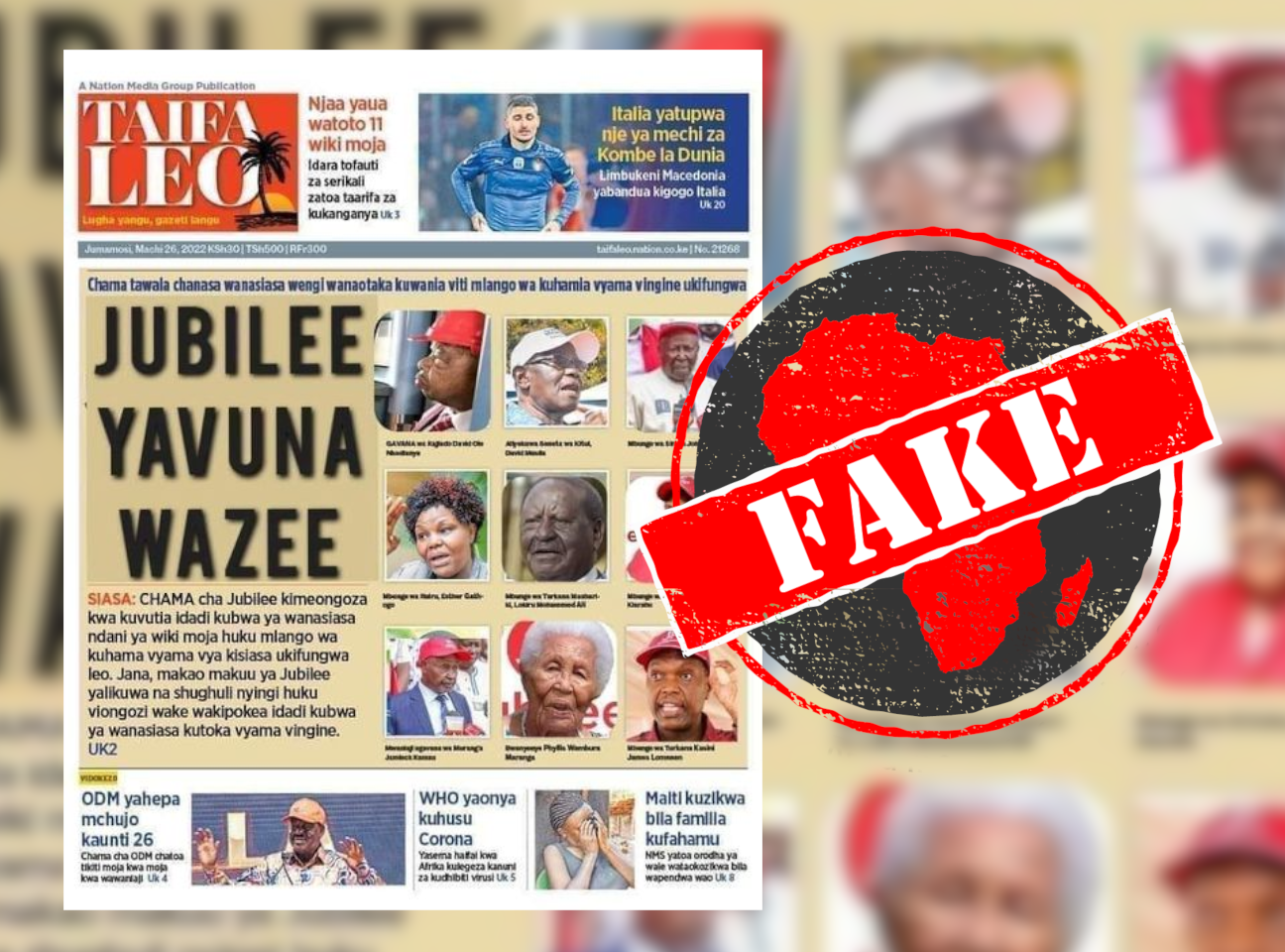“Jubilee yavuna wazee,” reads the headline of what seems to be the 26 March 2022 issue of Kenya’s Kiswahili-language Taifa Leo newspaper, circulating on Facebook.
This translates as: “Jubilee wins the aged”. The Jubilee Party is Kenya’s ruling party.
The page shows nine photos, most of elderly people.
Kenya is set to hold elections in August. In October 2021, the country’s electoral commission launched a drive to register the estimated 6 million young people who have become eligible to vote since the previous elections in 2017.
Taifa Leo is known for its bold headlines. But is this really its 26 March front page? We checked.

Photos switched out
Seven of the nine photos on the front page don’t match their captions.
The first photo, for example, is identified as Kajiado county governor David ole Nkedianye. But a reverse image search reveals that it’s actually of South Africa’s higher education minister, Blade Nzimande. A larger, uncropped version of the photo was posted on the South African government’s Twitter account in 2018.
The man in the third photo is said to be Kenyan legislator John Walukhe. But another reverse image search shows that he’s really nominated legislator Maina Kamanda.
And a photo captioned as Turkana county legislator Lokiru Mohammed Ali is in fact an altered image of Orange Democratic Movement leader Raila Odinga.
Of the nine images on the front page, only two match their captions.
‘Jubilee wins big’
Taifa Leo posts each day’s front page on its official Facebook and Twitter accounts.
The real front page was posted on 25 March. The headline reads: “Jubilee yavuna kuvuna”, or “Jubilee wins big.”
The headline and seven photos have been altered, but the rest is the same.
Republish our content for free
For publishers: what to do if your post is rated false
A fact-checker has rated your Facebook or Instagram post as “false”, “altered”, “partly false” or “missing context”. This could have serious consequences. What do you do?
Click on our guide for the steps you should follow.
Publishers guideAfrica Check teams up with Facebook
Africa Check is a partner in Meta's third-party fact-checking programme to help stop the spread of false information on social media.
The content we rate as “false” will be downgraded on Facebook and Instagram. This means fewer people will see it.
You can also help identify false information on Facebook. This guide explains how.





Add new comment